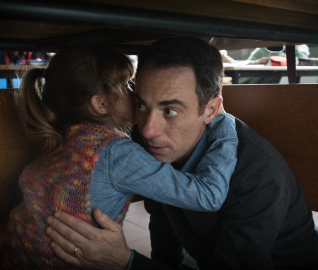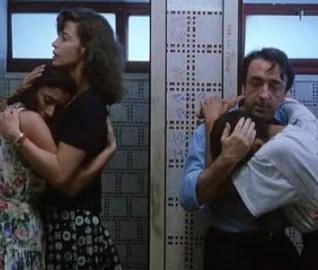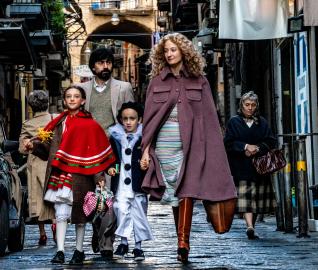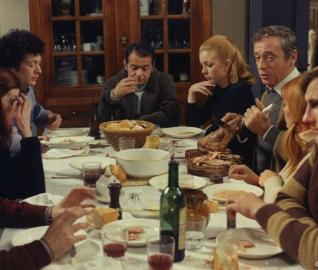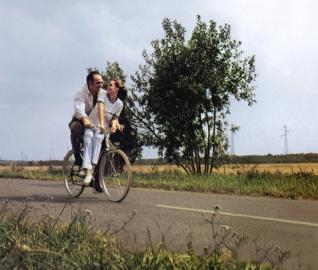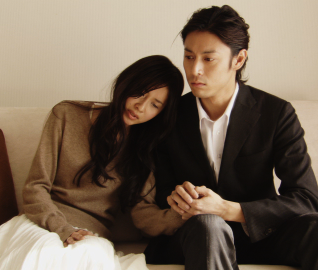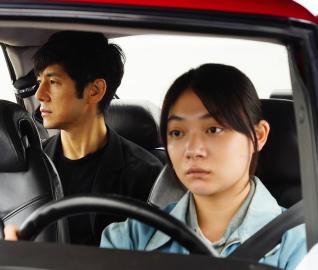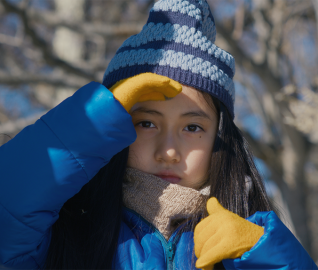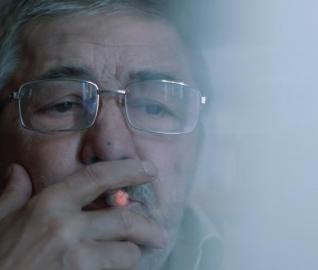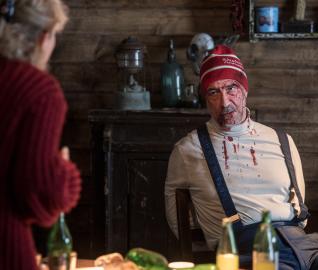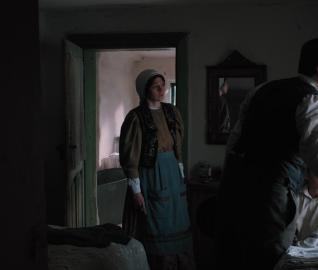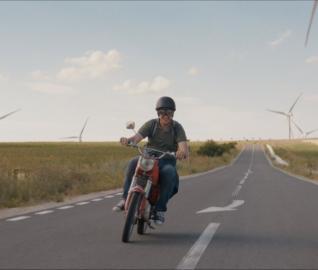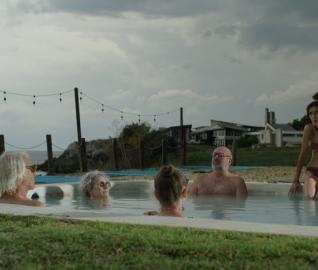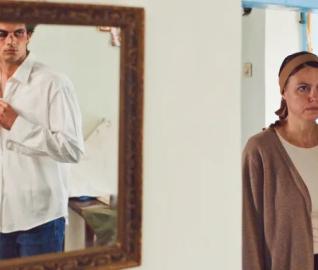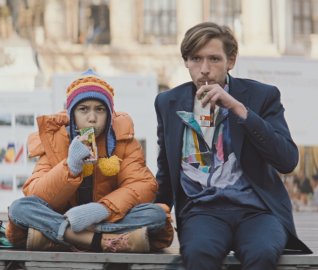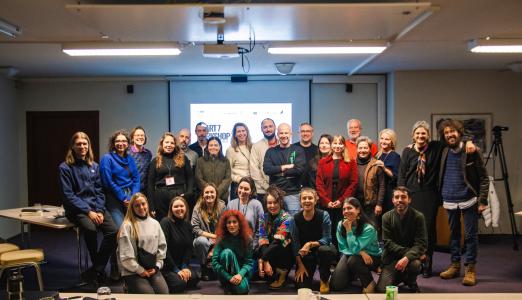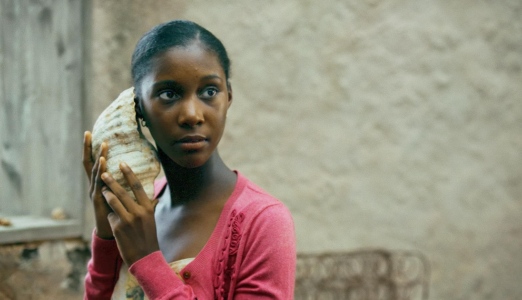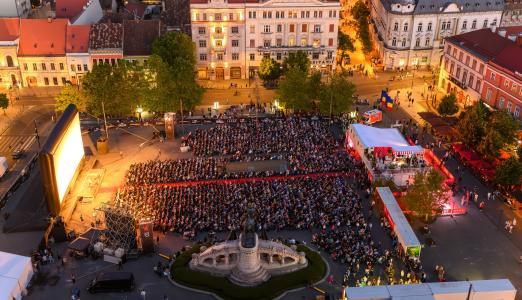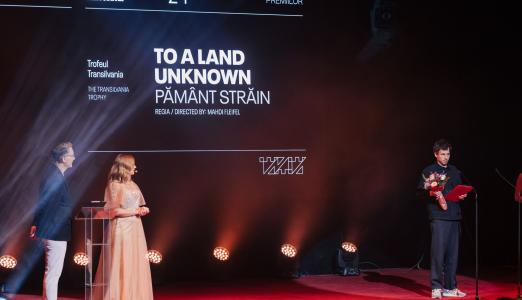Artistic Director Mihai Chirilov’s Recommendations

Artistic Director Mihai Chirilov’s Recommendations
In his yearly interview, Mihai Chirilov talks about the relationship between the festival and the city, the festivals new sections and the desire to avoid “ready-made” content.
We’ll start at the top, i.e., the theme of this year’s festival: relationships, building on last year’s love. Be they amorous, platonic, or even one’s relation with cinema, TIFF.23 is about relationships. How is this year’s theme reflected in the selected films?
Let’s make it clear from the start: this is the theme of this year’s advertising campaign, not necessarily the theme of the festival selection. Although, probably, if I were to close my eyes and randomly put my finger on one of the almost 200 films in the program, there’s an 85% chance I’d land on a film about relationships (whether they’re platonic, amorous, familial, couples’ or however else or between whom they may be). On the other hand, love stories per se are nowhere near as dominant, although the ones that are in the line-up are hot enough to make up for it: the one in Casablanca is intimate, atypical and heartbreaking; the triple one in The Beast is satisfyingly sophisticated and schizoid; the one in The Writer is liberating; the one in Seven Hills Seven Seas has so much pathos and mysticism that only the giant screen in Unirii Square can handle it; and, last but not least, the one in Trust is so sick and subtly visceral that it may undermine your drive to ever again abandon yourself to a romantic relationship without the safety net. Returning to the connective slogan of the current edition, «in a reelationship”, it indeed continues the story started last year with the two cinema lovers, but moves it almost exclusively to the online space, strategically borrowing its imagery and communication codes.
The idea came to us from that viral clip, pun included, of the Indian guy saying «if I send you a reel and you send me a reel, it means we are in a reelationship.” This reel exchange redefines the way most of us relate today, it means we know each other well enough to know what kind of content, opinion, situation or humor the other resonates with. This type of connection is as curated as in real life, evoking the way communities are built in the context of the festival, the way we recommend films to different audiences, the way people recommend films to one another based on their tastes…
Speaking of relationships,TIFF continues its relationship with young audiences through MiniTIFF, the successor of EducaTIFF. How can we integrate young audiences into a film festival?
After years of EducaTIFF, a section dedicated to children and teenagers, with films carefully selected according to age group, accompanied by thematic discussions and cinema criticism workshops, which, over time, generated an unprecedented educational project, Ora de Cinema, successfully implemented in schools, the time has come for a rebranding. MiniTIFF is a standalone festival that will make its debut in October, and the few films screened at TIFF this year are just an appetizer for this upcoming event. On the other hand, it must be said that young audiences are also the most elusive (although numerous) and difficult to attract into the TIFF equation. The causes are multiple (the inherent traditionalism of the collective experience of watching a movie at a cinema, technological progress, the attention deficit fueled by the consumption of images on social media, the alienation of contemporary society, the attractiveness of streaming channels, etc.), the solutions are approximate. The one we adopted this year was precisely this awareness campaign, moved almost exclusively to TikTok and Insta Reels, which, for young audiences, have become a substitute for reality.
The 3x3 section is set to return and offers outstanding diversity . How did you choose Ryusuke Hamaguchi, Daniele Luchetti and Claude Sautet?
I’ve been stalking Claude Sautet ever since the retrospective dedicated to him at last year’s San Sebastian festival, and I took advantage of the fact that 2024 marks the centenary of his birth. He may not be as coddled a filmmaker as Godard, Rohmer, Truffaut or Chabrol, but his work is solid and has a distinctiveness and musicality worth discovering. Plus, if you’re a Lea Seydoux fan, you might want to know that before her there was Romy Schneider, Sautet’s gorgeous fetish actress. Hamaguchi is present at 3x3 within the extended context of TIFF.23’s Focus dedicated to Japan, with the film that propelled him to the Oscar and into the international cinephile stratosphere (Drive My Car), with one of his early films, Passion, and with his most recent one, awarded in Venice, Evil Does Not Exist, which is so cryptic that I foresee prolonged discussions late into the night to decode its ending.
Last, but not least, Luchetti, who is coming to TIFF to receive a well-deserved Outstanding Contribution to World Cinema Trophy. Trust an almost vintage, provocative oeuvre with a dynamite idea and a sensational Elio Germano, such a peculiar film, as they are rarely made today. For a compact experience, the program only includes those titles in his filmography which, like Trust, are inspired by the novels of Domenico Starnone – an author who deserves to be further translated here, especially his School.
This year’s TIFF takes place between Roland Garros, the European Football Championship, and the Olympics. It’s a year full of sports. Did you have this context in mind when you designed the new Game On section?
Obviously, it’s the kind of context that invites extra-conjunctural representations – all the more so since the films in this sports-the-med section are not only about sports or from the safe, illustrative-inspirational area. Tatami is a mind-numbing political thriller with a brilliant concept.
Voy! Voy! Voy!, Egypt’s Oscar submission, is not necessarily about football, so much as it is a tenderly cynical, subversive and slightly politically incorrect comedy. Touché is not only about
fencing and success, but also about abandonment and ambition. And Kretsul is not limited to a real story from the realm of the Paralympic Games, but is an anthem about friendship, sacrifice and 100% commitment, made in the aesthetics of the Romanian New Wave. In addition to the return of an old category and the debut of a new category, TIFF has also added an extra day this year. What changes in the selection process when the festival lasts for an extra day?
Nothing. It is, if you will, the equivalent of the New Year’s Eve rerun shows – an opportunity for those who do not have to go to the office on Whit Monday to catch some of the most popular titles in the program, as well as the kids’ movies in MiniTIFF. And there’s one more thing, this extra day, I think, will soften the mix of alienation and gnawing nostalgia that TIFF’s final farewell Sunday usually generates.
How do you perceive the audience of the festival in 2024 and how have you noticed that their tastes have evolved over the 23 editions?
The audience is still a great unknown and avows an eclecticism that is difficult to capture in a stable formula, and maybe it should stay that way. Without false modesty, it’s an audience that has been educated over more than two decades of TIFF, they’re open, they’re cinephiles and they’re eager to be surprised. I suggest we also talk about Romanian Days.
Last year you expressed some reservations about the quality of Romanian films. This year’s selection seems very solid: new names and “blockbusters” like Moromeții 3 or Nasty. What does the landscape of Romanian cinema look like, after 23 years of TIFF?
I tend to remain equally reserved in relation to Romanian cinema as a whole. More and more films are being produced (which is very good), but the percentage of success and recognition of value remain the same as when much fewer was being produced. What I find commendable is that independent films are being made, especially in the documentary field. I really liked what Alexandra Gulea did in Maia – Portrait with Hands, a poetic hybrid inspired by Paradjanov that inventively plays with reality, reconstruction and live action fiction. Other interesting titles include Andrei Crețulescu’s cinephile meta-horror, Ext. Car. Night, and the improbable cocktail of genres, visual puzzle-filled Where the Elephants Go by duo Gabi Șarga and Cătălin Rotaru. The way Stere Gulea ends the Moromeții saga with a love film perfectly calibrated to the political changes and ideological turns of the era is very moving. The twist in the second half of the documentary A Cautionary Tale by Ilinca Călugăreanu is impressive, and the razor-sharp directorial rigor of Holy Week (dir. Andrei Cohn) and Three Kilometers to the End of the World (dir. Emanuel Pârvu) cuts in living flesh. But the most pleasant surprise of all Romanian Days is the satisfyingly wtf proposal from George ve Ganæaard and Horia Cucuta, Dismissed, a low-budget indie assembled as a fake investigative documentary, but with a plot so dense and winding that you cannot not imagine what a blockbuster could’ve come out of this story if the guys hadn’t just paid to make this movie out of their own pockets.
TIFF has accustomed its viewers to not being afraid to go against the grain. DW Griffith’ s short films and In the Realm of the Senses will be screened this year, with unsimulated sex scenes. Are these selections a statement?
Not necessarily – it’s counterproductive, but also risky to make statements, especially in the polarizing times we live in. These specific choices have to do with TIFF’s track record: silent films with live accompaniment (even if, in the case of Griffith’s shorts, the soundtrack is not at odds, but close to the cinema experience of the era in which they were made) and a shocking, eternally contested title like Nagisa Ōshima’s film, immensely transgressive, in the good tradition of the spirit-stirring festival. This year’s edition brings several popular series (Comrade, House of the Dragon). How does it feel to integrate the big screen with serialized content? It has already become a tradition for the festival. I don’t think it’s already a tradition, it’s more of a ploy to reach a different type of audience, which has meanwhile become addicted to the streaming experience.
Series sections have infiltrated many festivals, but it’s a double-edged sword, because you’re either including a marathon binging experience of an entire season, which risks being sabotaged by its mammoth duration (an the absence of a comfortable armchair and remote controls), or screen one or two episodes of a potentially attractive series, but without the promise of a real denouement – hence an equally real frustration. Plus, in the meantime, festivals dedicated exclusively to series have emerged, which neither mix things up, nor the public’s expectations. How things will evolve remains to be seen... although the novelty of series such as 1286 (from Kazakhstan) or Soviet Jeans (from Estonia), included by Laurențiu Paraschiv in the Coming Up Next section of TIFF.23, is attractive enough, even if we are deprived of their endings. On the other hand, the complete viewing experience of the Comrade miniseries has all the signs of a potential success: it is not only extremely competently and captivatingly produced, but promises new revelations on a subject about which we might think everything has already been said.
In closing, I’ll reiterate my personal question from last year: what are your favorite films at TIFF 23?
In random order: The Old Bachelor, the Iranian film in the Competition – a tragedy of Shakespearean proportions (and I’m not talking here about its mammoth 195-minute duration, which I swear you do not feel), with a pulverizing ending; Seven Hills Seven Seas – a visual feast of rare inventiveness, in which the rat’s fate will have you bawling even if your heart is made of stone; Day Tripper – as if Tati crossed with Roy Andersson made Shortcuts in China, deliciously absurd; the bombshell documentary Danger Zone – about war from the riskiest possible angle: tourism; Upon Open Sky – a top-notch Arriaga; the actress Lubna Azabal – phenomenal in the radical Amal; the Ukrainian Grey Bees – terribly nuanced and bravely funny in the minefield of the Russian-Ukrainian conflict; the Indian thriller Stolen – with the most riveting car chases in recent memory; the documentary The Contestant – a maximum generator of anger at TIFF.23; The Summer with Carmen – the sexiest film in the festival; Confidence (I know, I just said that earlier!); The Monk – with «the most perfect” ending; and, last but not least, the binomial of the aforementioned The Writer and Louis Malle’s 1981 cult classic – and improbably prophetic – My Dinner with André, probably the most explosive two-part conversation film ever made, essential to understanding the irretrievable madness of our contemporary times.
